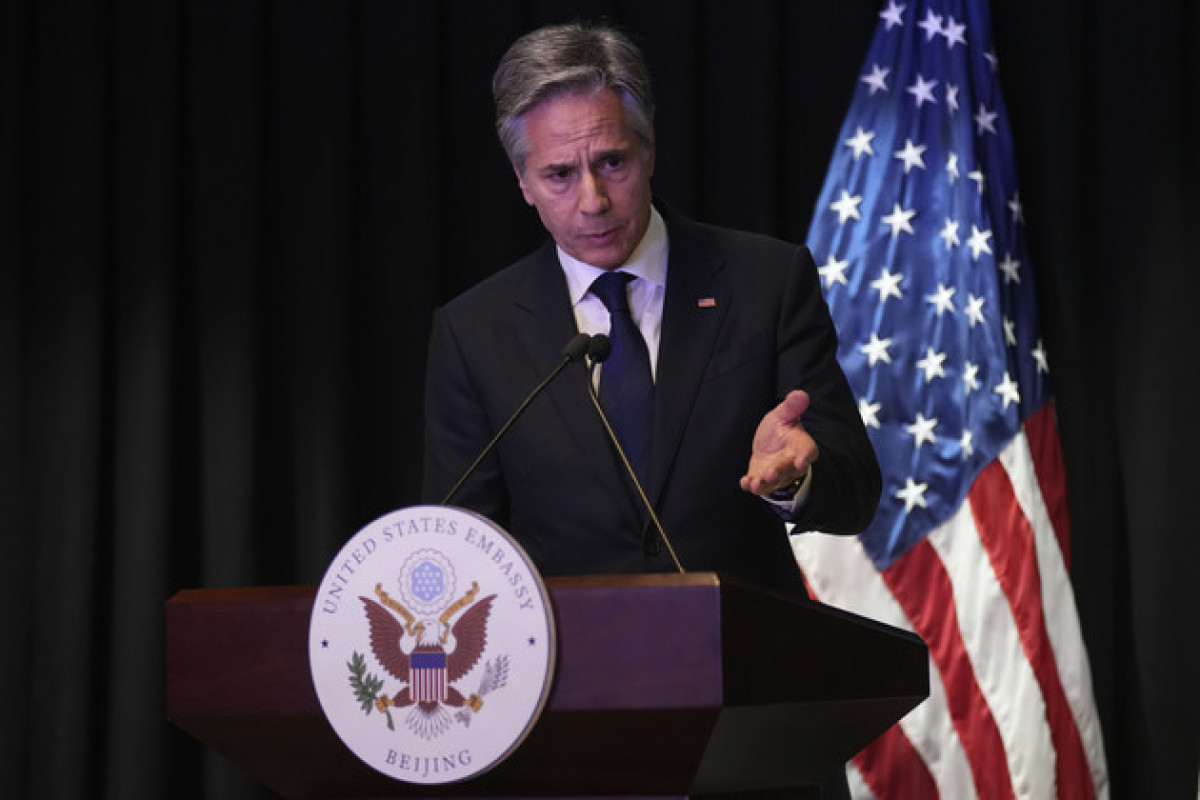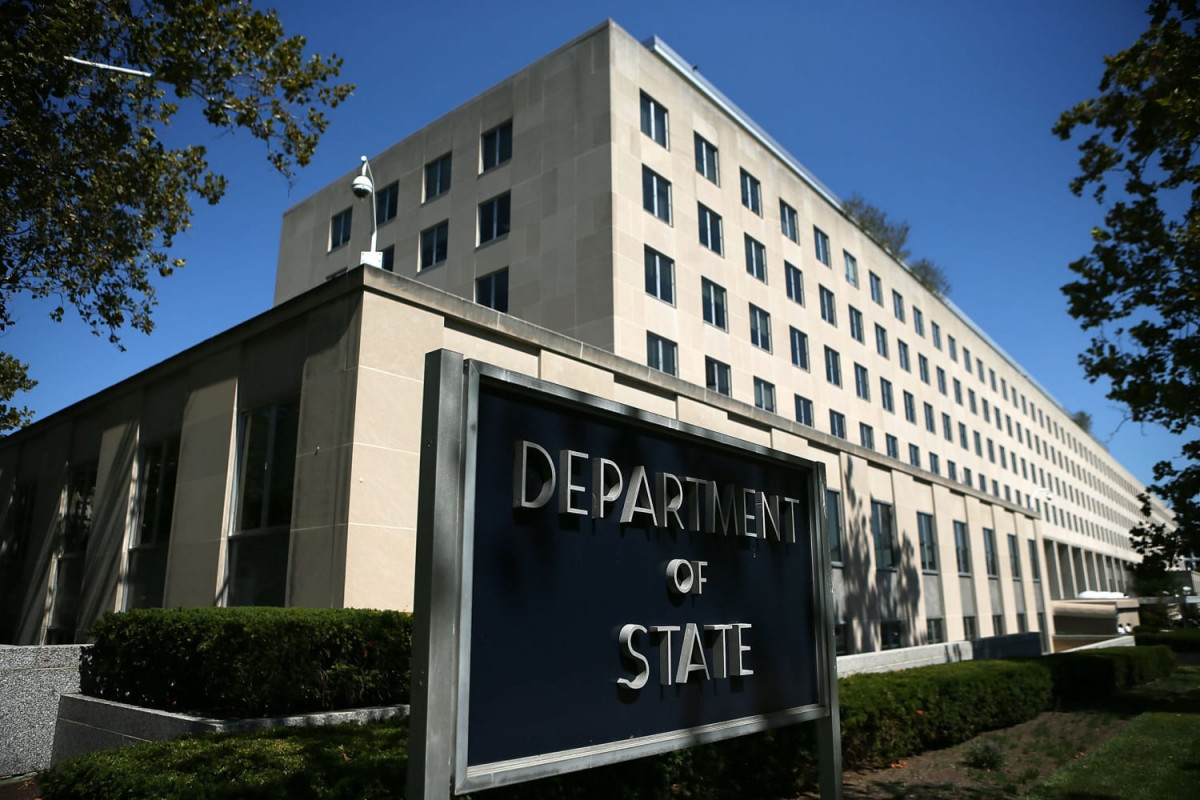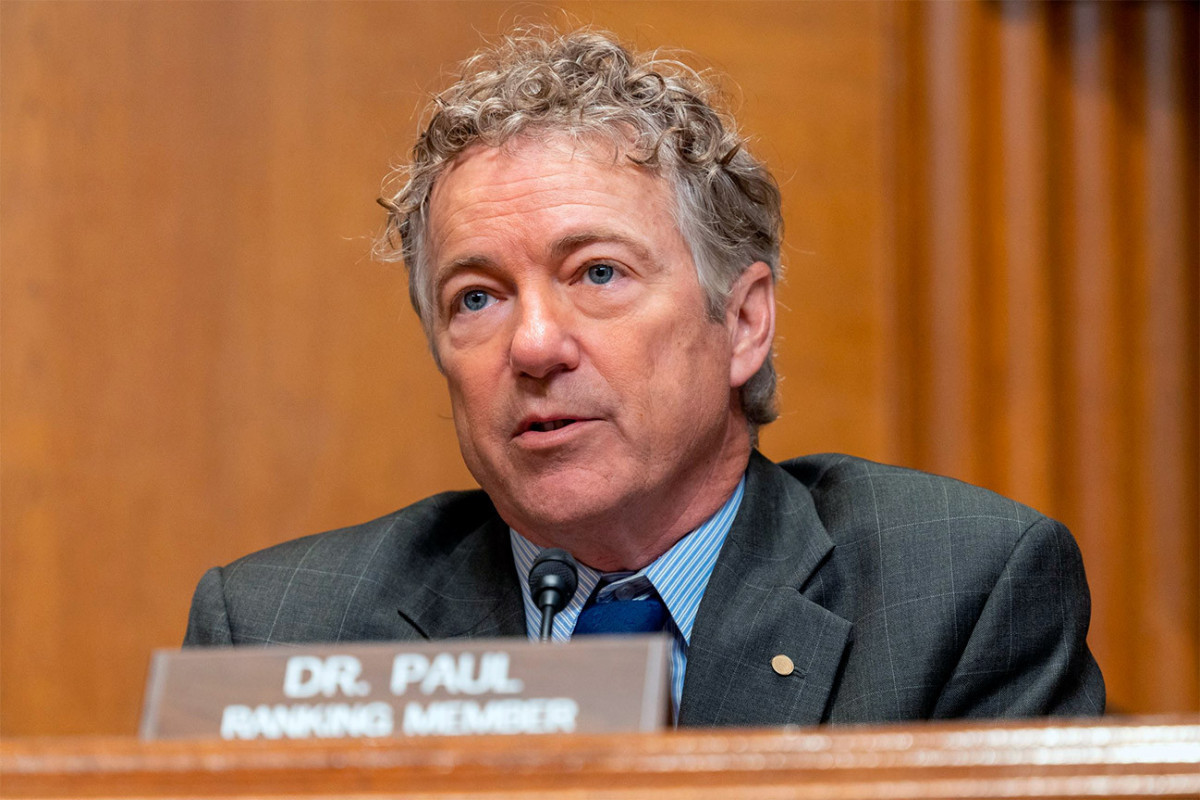Secretary of State Antony Blinken ended three days of meetings in China on Friday with a stark warning to China’s leadership — stop exporting materials that allow Russia to rebuild its industrial base or face U.S. sanctions, APA reports citing Politico.
Chinese state-owned firms are providing key components for Russia’s defense industrial base, including microelectronics and machine tools that have “a material effect against Ukraine” and constitute “a growing threat that Russia poses to countries in Europe,” Blinken told reporters in a press briefing in Beijing on Friday.
Blinken said that, in his meetings with China’s leader Xi Jinping and Foreign Minister Wang Yi, he made clear that the Biden administration is running out of patience with Beijing’s refusal to stop that support.
“We’re looking at the actions that we’re fully prepared to take if we don’t see a change…we’re already imposed sanctions on more than 100 Chinese entities, export controls and we’re fully prepared to take additional measures,” Blinken said.
Blinken said that there has been “important progress” in stabilizing U.S.-China relations since President Joe Biden’s meeting with Xi in San Francisco in November, but that key irritants — including tensions over trade, Taiwan and Beijing’s increasingly aggressive incursions into Philippine waters of the South China Sea — remain major obstacles.
Beijing didn’t give an inch. U.S.-China ties risk a “return to a downward spiral” in bilateral ties because “China’s legitimate development rights have been unreasonably suppressed and our core interests are facing challenges,” Wang told Blinken ahead of their meeting Friday.
That impasse reflects the fragility of the current reduction in bilateral rancor since the Biden-Xi meeting in November. And it suggests that the Biden administration’s months of intensive high-level diplomatic outreach to Beijing — including visits by Cabinet officials such as Treasury Secretary Janet Yellen and Commerce Secretary Gina Raimondo — is failing to meaningfully change Beijing’s behavior.
Despite the creation of a bilateral Counter Narcotics Working Group in January, the administration sees more rhetoric than substantive action to address China’s role in supplying the chemicals that Mexican cartels process into fentanyl that ends up on the streets of U.S. cities. Beijing, Blinken said, needs to start “prosecuting those who are selling chemicals and equipment used to make fentanyl” and “disrupting illegal illicit financing networks” who fund that trade.
The Biden administration is also taking a hard line on the risk that China’s industrial overcapacity for products like solar panels and electrical vehicles flood the U.S. with low-cost state-subsidized exports that could harm domestic firms. “This is a movie that we’ve seen before and…President Biden will not let this happen on his watch,” Blinken said.
Administration officials will sit down with their Chinese officials for a meeting agreed back in November by Biden and Xi on managing the development and use of artificial intelligence. Bilateral talks on “the risks and safety concerns around advanced AI and how best to manage them” will occur “in the coming weeks,” Blinken said.






